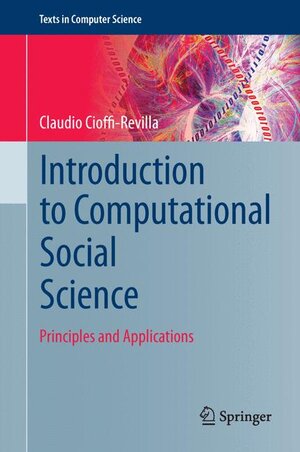- Introduction to Computational Social Science (978-3-319-50130-7) - Einband - fest (Hardcover)

From the book reviews:
“This 300 pages book a very good introduction to CSS, as it covers all relevant aspects that are fundamental to start a CSS research. … the book could be used for teaching methodological aspects of modeling in the social sciences … . Claudio-Cioffi’s book is a must read for any beginner of CSS. … It is a great synthesis of the main achievements in this field that could be fruitfully adopted by anyone teaching CSS as an introductory guide.” (František Kalvas, jasss. soc. surrey. ac. uk, February, 2015)
“It is a nice introduction for beginners to grasp the fundamentals of CSS. … This well-organized book provides a timely and comprehensive systematic introduction to CSS. The chapters are relatively independent. … Although this book is intended as a CSS textbook for graduate students … anyone who is interested in the fundamentals of CSS would benefit from reading it.” (Chenyi Hu, Computing Reviews, August, 2014)This reader-friendly textbook is the first work of its kind to provide a unified Introduction to Computational Social Science (CSS). Four distinct methodological approaches are examined in detail, namely automated social information extraction, social network analysis, social complexity theory and social simulation modeling. The coverage of these approaches is supported by a discussion of the historical context, as well as by a list of texts for further reading. Features: highlights the main theories of the CSS paradigm as causal explanatory frameworks that shed new light on the nature of human and social dynamics; explains how to distinguish and analyze the different levels of analysis of social complexity using computational approaches; discusses a number of methodological tools; presents the main classes of entities, objects and relations common to the computational analysis of social complexity; examines the interdisciplinary integration of knowledge in the context of social phenomena.




